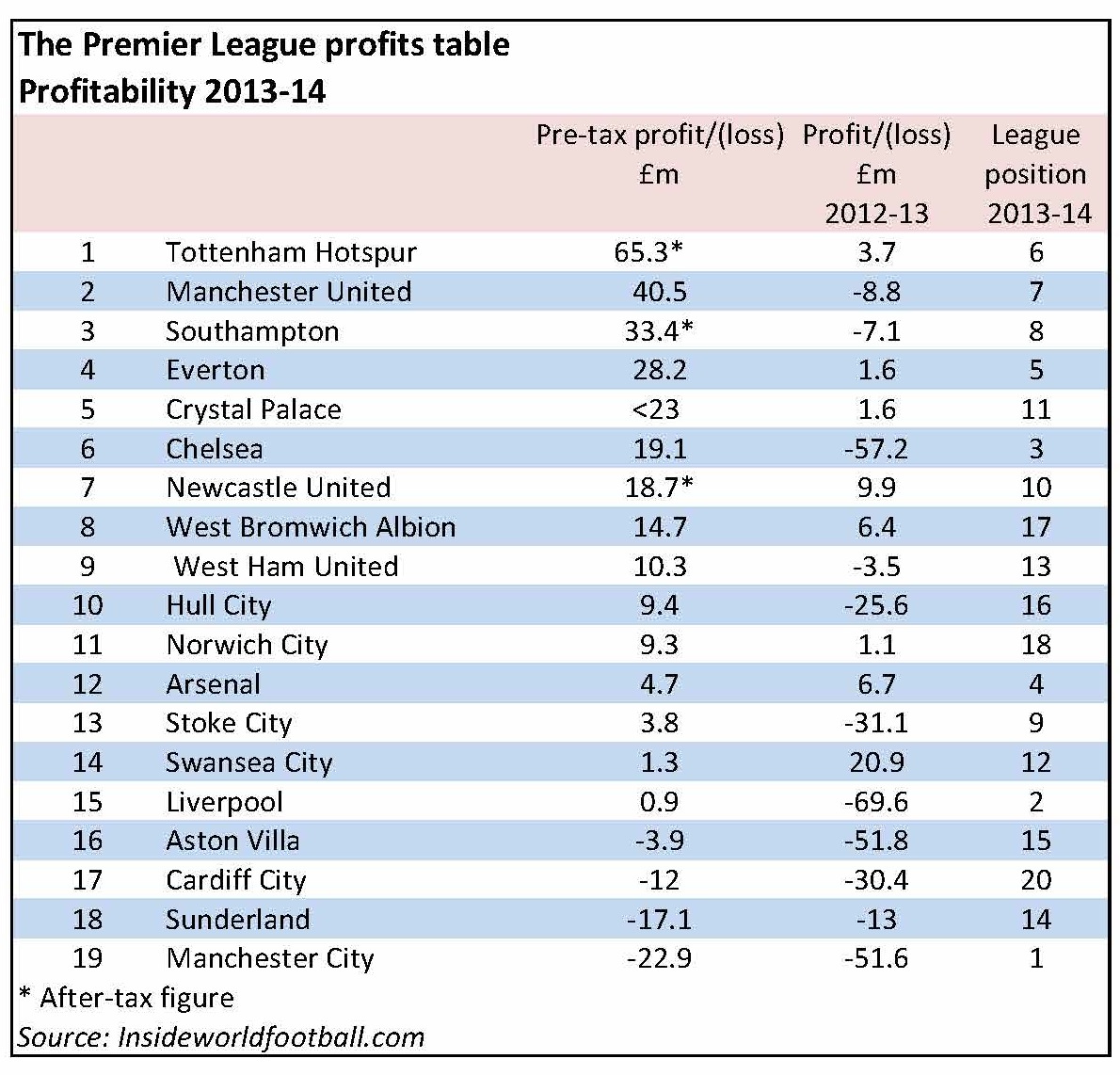By David Owen
April 10 – North London club Tottenham Hotspur have taken over from Swansea City as Premier League champions – Premier League profitability champions, that is. With the vast majority of financial information for the 2013-14 season now available, Spurs are well clear of Manchester United’s Red Devils in second place, with the Saints of Southampton – as surprising off the pitch as on – finishing third.
By contrast, bringing up the rear are the actual 2013-14 Premier League champions Manchester City, with Sunderland and relegated Cardiff City just above them.
As Insideworldfootball has been reporting for some time now, however, the real financial story of the Premier League in 2013-14 is the remarkably rapid –- and widespread – financial turnaround. Only four of the 19 clubs in the table were in the red, down from 11 the previous season. Only three clubs – Arsenal, Sunderland and Swansea City – did not report better figures in 2013-14 than the previous season.

While the club provided only a summary of annual financial information on its website, one can safely surmise that Tottenham’s success in achieving one of the biggest annual profits in Premier League history was attributable in large measure to the outstandingly lucrative September 2013 transfer of Welsh star Gareth Bale to Real Madrid.
For the majority of clubs, the improvement was down to two other factors: the much-improved flow of broadcasting income and the impact of UEFA’s Financial Fair Play (FFP) initiative, which appears to have been instrumental in preventing the extra TV money from flowing quickly back out of the door, as has tended to happen in the past.
The increased financial strength of several Premier League clubs, coupled with the knowledge that another bumper hike in broadcasting rights revenue is in the pipeline, may well contribute to an exciting summer of spiralling transfer fees, as managers seek to improve squads which have underperformed across-the-board this season in Europe.
The dramatically changed financial circumstances in which clubs now find themselves may also help to stimulate a new wave of interest in the Premier League from overseas investors. In some cases, this may enable current owners to sell down their stakes, or even exit the fray altogether at a profit.
While Tottenham may strike you as almost as unlikely a profits ‘champion’ as the club they succeed, Swansea City, regular Insideworldfootball readers should not be too surprised: as early as August 2013, the website predicted that Spurs would probably be propelled temporarily to the top of the league’s profitability rankings in 2013-14.
Contact the writer of this story at moc.l1734922469labto1734922469ofdlr1734922469owedi1734922469sni@n1734922469ewo.d1734922469ivad1734922469

